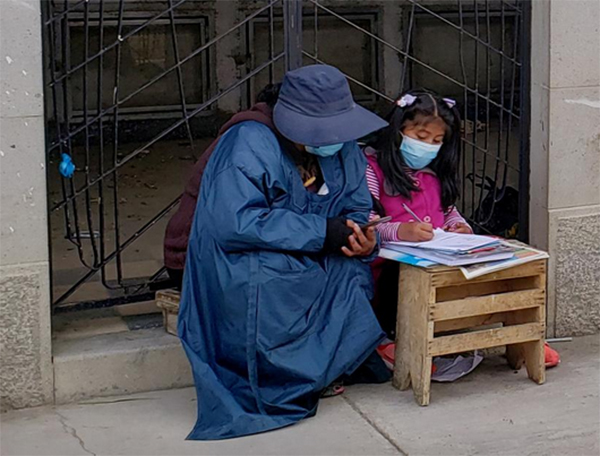LA PAZ (Reuters) – Neydi, a Bolivian primary school student, logs on to virtual classes like many kids around the world during the pandemic. The only difference is the setting: surrounded by tombstones in a public cemetery in highland city La Paz.
Bolivia has kept its schools largely closed during the COVID-19 outbreak, pushing many parents to find novel ways to get their kids online for class. It is particularly challenging in a country with sporadic internet connectivity, limited access to expensive computers, and high costs for mobile data.
Neydi’s mother, Jeanete Alanoca, a 30-year-old indigenous Aymara who makes a living working at the General Cemetery of La Paz, decided to bring her daughter along with her to make use of the area’s free WiFi. Neydi does not have her own device and must use her mother’s cellphone to do her schoolwork.
“Before the pandemic, I sent her to school and my in-laws also took care of her and picked her up from school. Because of this situation we are in, I have to bring her to work,” Alanoca told Reuters.
Alanoca’s work involves renting out stepladders at the cemetery to relatives and friends paying respects to loved ones, whose cremated remains are often kept in rows of elevated compartments.
Now she also helps her daughter out with her classes amid the graves. Without the free WiFi, the family would need to rely on expensive cellphone data. Her other elder daughter goes with her in-laws to use their phone.
She said neither mother or daughter were put off learning by the unusual classroom surroundings.
“They say the cemetery is scary, but I can’t do anything about that because either way I have to be here with my daughter and doing homework because I don’t have another cellphone. That’s why we’re here.”






